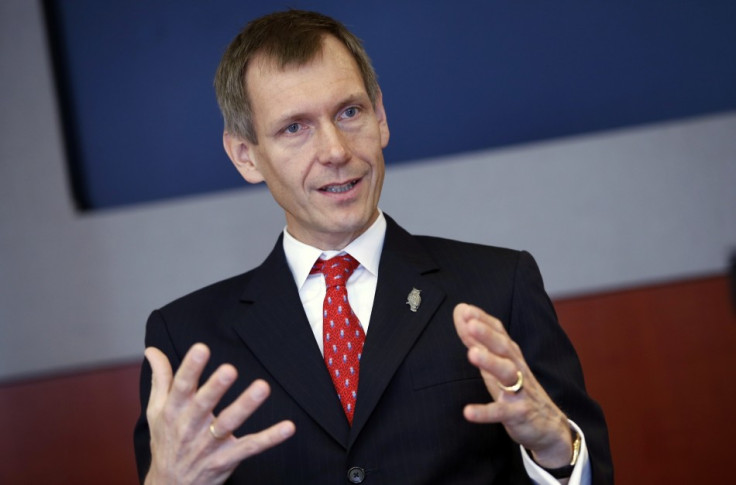Investor: Bitcoin Has No Value - But the Technology Behind it Does
The value of bitcoin is not in the coins themselves, but in the technology behind the peer-to-peer network through which they are traded, claims gold and currency investor Axel Merk.

Speaking to IBTimes UK, Merk believes the current bitcoin boom - which took the virtual currency past $900 per coin this week - is merely traders "passing around a hot potato...someone will get burnt," and that the real value is in the technology that runs it.
Merk is the president and chief information officer of Merk Funds, an investment advisory firm he sent up in Switzerland in 1994, before moving the business to California in 2001.
Must Read:What is Bitcoin and How Does it
Merk said that bitcoin trading is currently "like having a pre-paid debit card where the value is changing every couple of seconds and as long as the value's going up there will be a bunch of users who will be happy with it."
But the "real strength" of bitcoin is its potential to "shake up the banking system. There might be some other uses for bitcoin other than the ways it is used right now. International bank transfers are way too complicated, way too expensive. The banks need to get their acts together on that - bitcoin certainly does a better job."
Criticising international bank transfers for being "expensive and slow," Merk said bitcoin addresses both of these issues. "You can give banks a run for their money by deploying technology that's based on bitcoin...[this technology could] provide competition to a banking system that is just incapable of innovating, I think that could be fantastic."
Wildly fluctuating
Merk also sees a future where instead of bitcoin being the wildly fluctuating currency it is today, the technology used to trade it will be used for functions like "allowing frequent flyer miles to be traded in some sort of decentralised fashion."
Expanding on his ideas for bitcoin's infrastructure, Merk believes the system could also be used to transfer financial units such as a business's employee bonus structure. The bonuses could be sent directly to employees worldwide without the need to go through a bank, or pay for international money transfers - although how this would comply with tax regulations is unclear at this stage.
"I think ultimately it will be used not as a currency but as a technology, a decentralised way of managing obligation - I think that really is what the novelty is here. For a business, you could come up with your latest and greatest bonus points, which you could [use the bitcoin platform to] trade globally."
As for bitcoin the currency - down almost 50% in 24 hours, having risen more than 500% this year - Merk suggests that a way to stabilise the volatility would be to create a derivatives exchange. "That might create some more stability so people can short the coins, or hedge the coins. I wouldn't be surprised if that's going to come up next and make things more stable."
Human psychology
Many believe bitcoin's surging value comes from increased interest in China. Merk explained: "The Chinese don't have many places they can invest and so they have been buying real estate - including in California where I'm based - and they buy gold, so bitcoin is something they can jump on to and of course if the price goes high it attracts other momentum players.
"Most of it though, unfortunately, is an exercise in human psychology...It's mostly interesting to watch, but I could not recommend anyone to join the craze."
Traders and investors might not see the value in bitcoin beyond making (or losing) a quick buck, but Merk likens this to the early years of the web. "When web search engines came out you probably wouldn't invest in their IPO, but then Google showed what could be done with ad revenue.
"Similarly, I don't think the value in bitcoin is in the coin, the value is in the technology and that you can do other things with it."
As the US Senate conducts investigations into better understanding bitcoin, with an aim of ensuring its use complies with existing tax and anti-money laundering regulations, Merk believes a peer-to-peer money trading network avoiding any central bank is possible, and can exist alongside the traditional banking industry.
"The value added by a bank as an intermediary is limited - let me just be diplomatic about that. And so why do it? Why have that overhead? And so if you're able to do peer-to-peer that's great. My view; you should be able to do peer-to-peer and be able to comply with government regulation."
Read More:
© Copyright IBTimes 2025. All rights reserved.






















